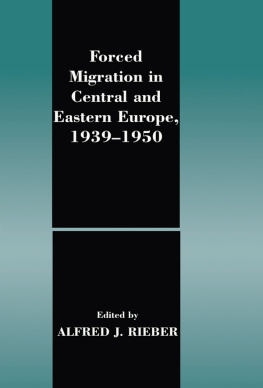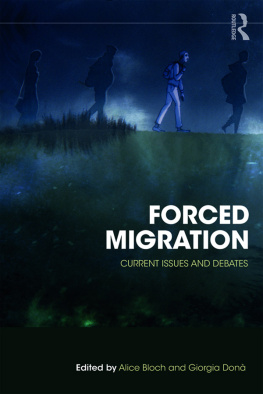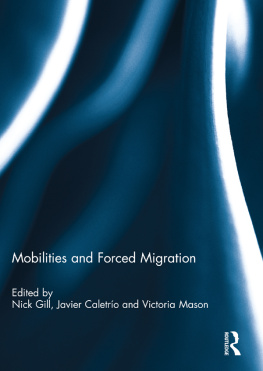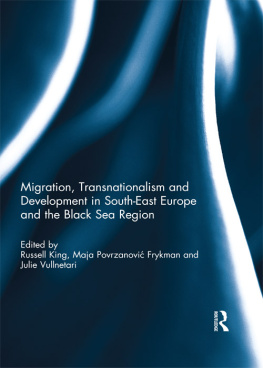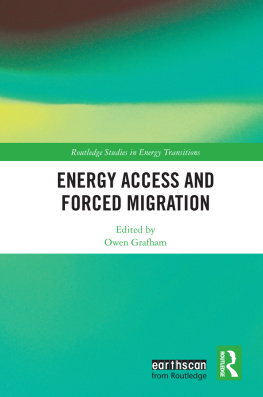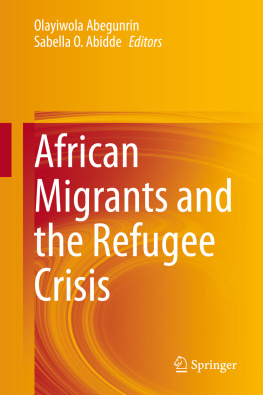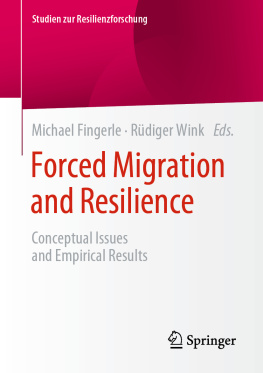Captivity, Forced Labour and Forced Migration in Europe during the First World War
The notion of the First World War as the great seminal catastrophe (Urkatastrophe) of the twentieth century is now firmly established in historiography. Yet astonishingly little has been written about the fate of non-combatants in occupied and non-occupied territory, including civilian internees, deportees, expellees and disarmed military prisoners.
This volume brings together experts from across Europe to consider the phenomena of captivity, forced labour and forced migration during and immediately after the years 1914 to 1918. Each contribution offers a European-wide perspective, thus moving beyond interpretations based on narrow national frameworks or on one of the fighting fronts alone. Particular emphasis is placed on the way in which the experience of internees, forced labourers and expellees was mediated by specific situational factors and by the development of war cultures and mentalities at different stages in the respective war efforts. Other themes considered include the recruitment and deployment of colonial troops in Europe, and efforts to investigate, monitor and prosecute alleged war crimes in relation to the mistreatment of civilians and POWs. The final contribution will then consider the problems associated with repatriation and the reintegration of returning prisoners after the war.
This book was published as a special issue of Immigrants and Minorities.
Matthew Stibbe is Reader in History at Sheffield Hallam University.
Captivity, Forced Labour and Forced Migration in Europe during the First World War
Edited by Matthew Stibbe
First published 2009 by Routledge
2 Park Square, Milton Park, Abingdon, Oxon, OX14 4RN
Simultaneously published in the USA and Canada
by Routledge
711 Third Avenue, New York, NY 10017
First issued in paperback 2013
Routledge is an imprint of the Taylor & Francis Group, an informa business
2009 Edited by Matthew Stibbe
All rights reserved. No part of this book may be reprinted or reproduced or utilised in any form or by any electronic, mechanical, or other means, now known or hereafter invented, including photocopying and recording, or in any information storage or retrieval system, without permission in writing from the publishers.
British Library Cataloguing in Publication Data
A catalogue record for this book is available from the British Library
ISBN13: 978-0-415-44003-5
ISBN13: 978-0-415-84635-6
Matthew Stibbe is Reader in History at Sheffield Hallam University. He has published widely in the area of First World War Studies and twentieth-century Europe more generally. His most recent work is British Civilian Internees in Germany: The Ruhleben Camp, 191418 (Manchester University Press, 2008). He is currently engaged in a project on civilian internment in Austria (Cisleithania) during the First World War, as well as co-editing, with Ingrid Sharp, a collection of essays on womens movements and female activists in the aftermath of the war, 191823.
Heather Jones is Lecturer in International History at the London School of Economics and Political Science. She completed her Ph.D. in 2006, at Trinity College Dublin, on violence against prisoners of war during the First World War in Britain, France and Germany; this study was awarded the Eda Sagarra medal by the Irish Research Council for the Humanities and Social Sciences. A former Max Weber Fellow at the European University Institute, she has published widely on prisoner treatment. Her most recent publication is The German Spring Reprisals of 1917: Prisoners of War and the Violence of the Western Front published in German History 26, no. 3 (2008).
Peter Gatrell is Professor of Economic History at the University of Manchester. He is the author of numerous books and articles, including A Whole Empire Walking: Refugees in Russia during World War 1 (Indiana University Press, 1999), which won the Wayne Vucinich Prize of the American Association for the Advancement of Slavic Studies and the Alec Nove Prize of the British Association for Slavonic and East European Studies. Together with Nick Baron he is editing Warlands: Population Resettlement and State Reconstruction in Soviet Eastern Europe, 19451950 (Palgrave Macmillan, forthcoming) and completing a study of World Refugee Year, 195960 as well as a book entitled The Making of the Modern Refugee.
Christian Koller is Senior Lecturer in Modern History at the University of Wales, Bangor, and Privatdozent at the University of Zurich in Switzerland. His research interests include the history of racism and nationalism, the history of peace and war (with a special focus on the First World War), sport history, historical semantics and labour history. His most important publications include Von Wilden aller Rassen niedergemetzelt: Die
Diskussion um die Verwendung von Kolonialtruppen in Europa zwischen Rassismus, Kolonial- und Militrpolitik (19141930) (Steiner, 2001); (with F. Brndle:) Goal! Kultur- und Sozialgeschichte des modernen Fussballs (Orell Fussli, 2002); Fremdherrschaft. Ein politischer Kampfbegriff im Zeitalter des Nationalisms (Campus Verlag, 2005); and Streikkultur. Performanzen und Diskurse des Arbeitskampfes im schweizerisch-osterrei-chischen Vergleich (18601950) (forthcoming).
Daniel Marc Segesser is Privatdozent and Collborator of the Head of the Department at the University of Bern in Switzerland. His publications include studies on the history of Australia, the military history of Belgium and France, as well as the history of the international legal debate on the punishment of war crimes in the period between 1872 and 1945 and of international law in general. His most recent work, Recht statt Rache oder Rache durch Recht? Die Ahndung von Kriegsverbrechen in der internationalen wissenschaftlichen Debatte, 18721945, is due to be published by Schoningh in Paderborn shortly.
Reinhard Nachtigal is a historian working in Freiburg im Breisgau in Germany. His many publications include a number of important works on POWs on the Eastern Front during the First World War and on British economic engagement in Russia during the same period. He has also produced a recent study of German settlers in the Don Cossack territory, Donskiye nemcy, 18301930: Die Dondeutschen (Verlag Waldemar Weber, 2007). He is currently engaged in a project on Russian military strategy in the Caucasus region during the first half of the nineteenth century.
Matthew Stibbe
Department of History, Sheffield Hallam University, Sheffield, UK
The citizens of Nimes were proud of themselves for having done their duty, and more, towards the refugees. They had welcomed them with open arms, pressed them against their bosoms. There was not a single family who had not offered hospitality to these poor people. It was just a shame that this state of affairs was dragging on so unreasonably long. There was also the matter of provisions, and you cant forget either, said the townspeople, that all these poor refugees, exhausted by their journey, would be susceptible to the most terrible epidemics. There were veiled hints in the press and more open, brutal demands from other quarters, urging the refugees to leave as soon as possible. But as yet, circumstances had prevented anyone from going anywhere.1
So wrote the French-Russian author and Holocaust victim Irene Nemirovsky in her unfinished and only recently discovered novel


